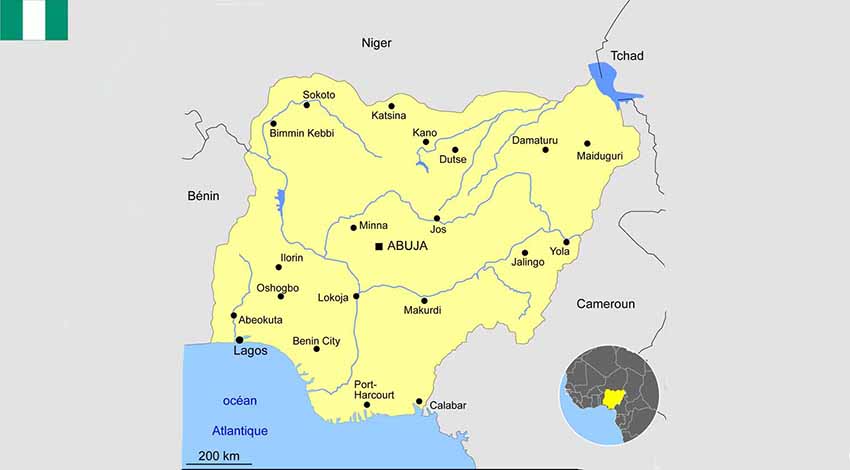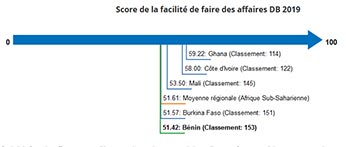
1.1 Geographic and politics characteristics of Nigeria
Political system
British influence and control over what would become Nigeria and Africa's most populous country grew through the 19th century. A series of constitutions after World War II granted Nigeria greater autonomy. After independence in 1960, politics were marked by coups and mostly military rule, until the death of a military head of state in 1998 allowed for a political transition. In 1999, a new constitution was adopted and a peaceful transition to civilian government was completed.
In Nigeria the president directly elected by qualified majority popular vote and at least 25% of the votes cast in 24 of Nigeria's 36 states; president elected for a 4-year term (eligible for a second term); election last held on 28-29 March 2015 (next to be held on 23 February 2019); note: election was scheduled for 16 February 2019 but was postponed on 15 February 2019
In Nigeria the president directly elected by qualified majority popular vote and at least 25% of the votes cast in 24 of Nigeria's 36 states; president elected for a 4-year term (eligible for a second term); election last held on 28-29 March 2015 (next to be held on 23 February 2019); note: election was scheduled for 16 February 2019 but was postponed on 15 February 2019
- Area : 923.768 km2
- Population : 203.452.502 (July 2018)
- Density : 220 people/km2
- Population growth rate : 2.54%
- Urban population : 50.3% (2018)
- Official language : English
International agreements
Member of West African Monetary Zone, Nigeria is also part of Economic Community of West African State with Benin, Burkina-Faso, Cabe Verde, Cote d’Ivoire, The Gambia, Guinea, Bissau Guinea, Liberia, Mali, Niger, Nigeria, Senegal, Sierra Leone and Togo.
1.2 Macroecononic Framework
1.3 Economic performance and outlook of Nigeria
1.4 Ease of Doing Business
- Benin (capital : Porto-Novo)
- Burkina Faso (capital : Ouagadougou)
- Cape Verde (capital : Praia)
- Ivory Cost (capital : Abidjan)
- Gambia (capital : Banjul)
- Ghana (capital : Accra)
- Guinea (capital : Conakry)
- Guinea Bissau (capital : Bissau)
- Liberia (capital : Monrovia)
- Mali (capital : Bamako)
- Niger (capital : Niamey)
- Nigeria (capital : Abuja)
- Senegal (capital : Dakar)
- Sierra Leone (capital : Freetown)
- Togo (capital : Lomé)




